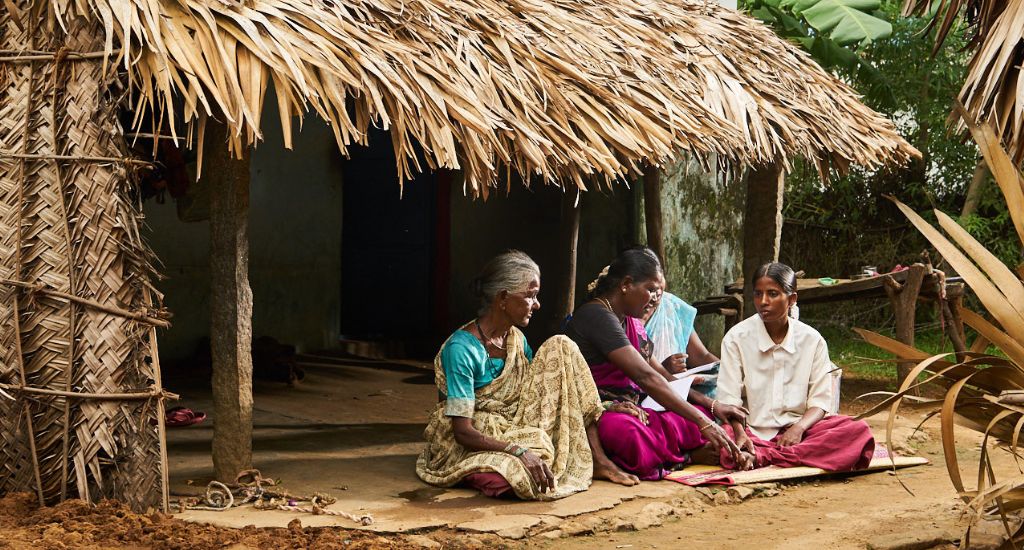
Healing mental health wounds
Access to mental health care is lacking in rural India - especially for the marginalized - which is why The Banyan mental health service organization enlists local community women to help them help those in need.

Access to mental health care is lacking in rural India - especially for the marginalized - which is why The Banyan mental health service organization enlists local community women to help them help those in need.
For as long as Sethu remembered he struggled to manage his seizures.In a social context where masculinity is constrained within the boundaries of physical strength, Sethu’s epilepsy attracted ridicule and contempt from his family and fellow.
Due to persistent social ostracism, Sethu withdrew from work, family and spent his days in isolation.
Eventually, Sethu walked into one of rural India’s few mental health clinics. He and his wife were then counseled – both individually and together – in the clinic and at home. His children were also offered financial and academic support to reenter schooling.
With consistent engagement and other support services, Sethu’s relationship with his wife and children grew visibly stronger and affectionate. More than anything, he is relieved that for the first time in his life he is free of seizures for a whole year.
Not everyone is so lucky.
The World Health Organization (WHO) says there should be at least one psychiatrist for every 100,000 persons. But with the exception of a few states, that kind of basic mental health support does not happen.
That is why The Banyan opened its doors and hearts 30 years ago.
We are a mental health service organization for India’s homeless and ultra-vulnerable populations in rural Tamil Nadu, Kerala and Maharashtra.
Working with people like Sethu is what we do.
The National Rural Health Mission (NRHM) has struggled to make mental health services accessible and affordable in rural India. Traveling long distances, bearing loss of a day’s wages and out of pocket expenses deter people from accessing public or private health care services. In India, the gaps in mental health care services are immense.

According to the WHO’s 2018 guideline, a non-specialist local mental health workforce is crucial for early detection and treatment of mental illnesses.
This is particularly important for the socio-economically marginalized who are most affected because of the lack of social care and inaccessible welfare schemes.
The Tamil word for wellness is nalam.
So in 2012 we created the NALAM program by mobilizing local community workers – mostly women.
They focus on the wellness of people to address their mental health and social needs. This includes identification of vulnerable populations, referrals for treatment, clinical services, follow-up care, training, community awareness and advocacy.
Social needs such as children’s education, access to government benefits, employment and livelihood are also addressed.
The NALAM mobilizers, as we call them, interact closely with the clients to understand their mental health status, treatment compliance, socio-economic problems and facilitate access to social care. They are trained by the Banyan Academy of Leadership in Mental Health (BALM) in community mental health care.
The NALAM program goes hand-in-hand with the emergency care and recovery centres (ECRC) that offers person-centered, hospital-based care for homeless people with mental health issues in urban and rural India. It offers access to a range of facilities that best suit a client’s individual needs like Critical Time Intervention (CTI) and admission to The Banyan’s In-Patient (IP) services, pharmacological and therapeutic interventions, and recreational and referral services.
Since 2012, more than 9000 clients have registered for NALAM services and as of October 2022, 1200 of them are being actively served.

“It was staff visiting that gave me something to look forward to. I was happy that someone cared enough about me to come all the way to my home to ask about how I was doing. They spoke to me kindly. If the staff hadn’t come home regularly and checked on me, I might not have had the strength to face my challenges,” said another Banyan client, who participated in the NALAM service.
Currently, there are 14 ECRCs – four of them are run directly by The Banyan (two in Chennai and one each in Chengalpet and Ponnani).
The remaining (Sivagangai, Erode, Tanjore, Tirunelveli, Nigliris, Madhurai, NULM Trichy, Tiruvallur) are run in partnership with the state government (National Health Mission, Tamil Nadu) and NGOs in Tamil Nadu and Karnataka.
Through ECRCs, a total of 3023 clients have been supported and 1975 reintegrated till date.
“Some people spend a lot of money on traditional healers or bhagat or private hospitals. After some time the money runs out and then they have to stop the treatment reluctantly. Many such clients come to The Banyan’s clinic for treatment. They get free treatment and medicines. When the client recovers, the reactions from their relatives are extremely satisfying,” says Sita (name changed) a NALAM worker from Maharashtra.
The NALAM program not only supports the mental and social needs of the community but also empowers the NALAM mobilisers by providing sustainable employment, mental health gains and self-care, and respect from their community.
“Earlier, I would hesitate to talk to anyone new, especially if I had to do it alone. Now, I’ve grown a lot and become more confident – be it home visits or any other interactions. I’m able to even train our NALAM workers too. I’ve also gained a lot of other skills like writing and managing data,” says Gayatri, (name changed) a community worker from Chengalpattu, Tamil Nadu.
To further strengthen the public healthcare system in rural areas, we hope to sustainably scale our models of care by working with local stakeholders, governmental and non-governmental organizations, and global partners.
How?
We hope to incorporate participatory action research – the findings of which may translate to advocacy, never mind destigmatizing mental health through peer leadership and awareness.
M Namrata Rao is the co-lead of the Centre for Trauma Studies and Innovation at BALM.
Dr. Lakshmi Ravikanth is the co-dean at BALM.